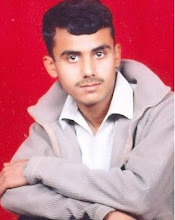Written accounts document the existence of the city for at least 150 years prior to the formation of the UAE. Dubai shares legal, political, military and economic functions with the other emirates within a federal framework, although each emirate has jurisdiction over some functions such as civic law enforcement and provision and upkeep of local facilities. Dubai has the largest population and is the second largest emirate by area, after Abu Dhabi.Dubai and Abu Dhabi are the only two emirates to possess veto power over critical matters of national importance in the country's legislature.Dubai has been ruled by the Al Maktoum dynasty since 1833. Dubai's current ruler, Mohammed bin Rashid Al Maktoum, is also the Prime Minister and Vice President of the UAE.

Governance and politics 
Dubai has approximately 250,000 labourers, mostly South Asian, working on real estate development projects such as the Dubai Marina.
Dubai's government operates within the framework of a constitutional monarchy, and has been ruled by the Al Maktoum family since 1833. The current ruler, Mohammed bin Rashid Al Maktoum, is also the Prime Minister of the United Arab Emirates and member of the Supreme Council of the Union (SCU). Dubai appoints 8 members in two-term periods to the Federal National Council (FNC) of the UAE, the supreme federal legislative body. The Dubai Municipality (DM) was established by the then ruler of Dubai, Rashid bin Saeed Al Maktoum in 1954 for purposes of city planning, citizen services and upkeep of local facilities. DM is chaired by Hamdan bin Rashid Al Maktoum deputy ruler of Dubai and comprises several departments such as the Roads Department, Planning and Survey Department, Environment and Public Health Department and Financial Affairs Department. In 2001, Dubai Municipality embarked on an e-Government project with the intention of providing 40 of its city services through its web portal (Dubai.ae). Thirteen such services were launched by October 2001, while several other services were expected to be operational in the future.
Dubai and Ras al Khaimah are the only emirates that do not conform to the federal judicial system of the United Arab Emirates. The emirate's judicial courts comprise the Court of First Instance, the Court of Appeal, and the Court of Cassation. The Court of First Instance consists of the Civil court, which hears all civil claims, the Criminal Court, which hears claims originating from police complaints, and Sharia Court, which is responsible for matters between Muslims. Non-Muslims do not appear before the Sharia Court. The Court of Cassation is the apex court of the emirate and only hears disputes on matters of law. The Dubai Police Force, founded in 1956 in the locality of Naif, has law enforcement jurisdiction over the emirate; the force is under direct command of Mohammed bin Rashid al Maktoum, ruler of Dubai. Dubai Municipality is also in charge of the city's sanitation and sewage infrastructure. The city's rapid growth has resulted in its limited sewage treatment infrastructure being stretched to its limits. Article 25 of the Constituion of the UAE provides for the equitable treatment of persons with regard to race, nationality, religious beliefs or social status. However, many of Dubai's 250,000 foreign laborers live in conditions described by Human Rights Watch as being "less than human. NPR reports that workers "typically live eight to a room, sending home a portion of their salary to their families, whom they don't see for years at a time." On 21 March 2006, workers at the construction site of Burj Dubai, upset over bus timings and working conditions, rioted: damaging cars, offices, computers, and construction tools. Judicial rulings in Dubai with regard to foreign nationals were brought to light by the alleged attempts to cover up information on the rape of Alexandre Robert, a 15 year old French-Swiss national, by three locals, one of whom was HIV positive and by the recent mass imprisonment of migrant laborers, most of whom were from India, on account of their protests against poor wages and living conditions. Prostitution, though illegal by law, is conspicuously present in the emirate because of an economy that is largely based on tourism and trade. Research conducted by the American Center for International Policy Studies (AMCIPS) found that Russian and Ethiopian women are the most common prostitutes, as well as women from some African countries, while Indian prostitutes are part of a well organized trans-Oceanic prostitution network.A 2007 PBS documentary entitled Dubai: Night Secrets reported that prostitution in clubs is tolerated by authorities and many foreign women work there without being coerced, attracted by the money




No comments:
Post a Comment